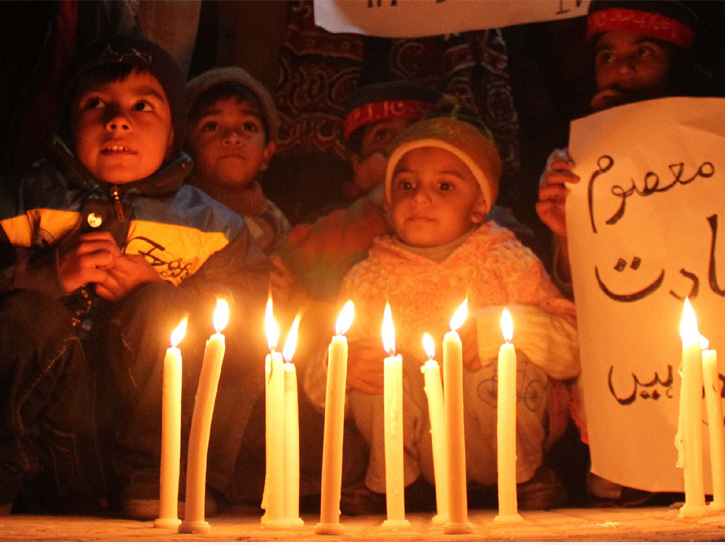From Peshawar to Bethlehem – Chhotebhai

Writers are seldom at a loss for words. Post Peshawar 16/12 I was shell shocked, and am still struggling to piece together my thoughts. No words suffice to condemn this carnage, described by some as beastly or insane. I beg to differ, because this is not animal behaviour, nor were the perpetrators of this crime against humanity insane. They were as highly focused as the SS Nazi troops of Hitler, who exterminated millions of Jews during World War II.
Most perpetrators of genocide justify their acts under some ideology or other, especially when they perceive somebody else as the “other”. So they are not insane, nor their actions inane. They are so strongly motivated, brainwashed if you like, that they are actually inured to the “other’s” pain, and even their own impending suicidal death. Religious fundamentalists, under the pretext of “Islam” are killing indiscriminately in Iraq, Syria, Nigeria, and Kenya; and most recently in Australia and now Peshawar. Be it the ISIS, LeT, Boko Haram or the Taliban, they all have a common denominator – to decimate the “other”.
History is replete with religious wars in the name of crusades, jihad, dharamyudhs etc., in which the perpetrators justify their actions. I am no one to judge the past, or see things out of context; but such actions have absolutely no place in our modern world, where there are ample opportunities for dialogue and dispute resolution with the support of information technology and international arbitration.
Since Peshawar happened just a week before Christmas, my thoughts flew to Bethlehem, the place of Jesus’ birth, which we are now commemorating. At that time the angels heralded “Glory to God in the highest and peace to people on earth”. This touching nativity scene, popularized in Christmas cards, cribs, carols and tableaux, was rudely shattered shortly thereafter. The reigning Jewish king, Herod, perceived a threat to his hegemony. Who was this “other”, this pretender to the throne? The king would brook no challenge. The challenger had to be eliminated immediately. The Bible recounts the subsequent horrific act of infanticide.
The first case of infanticide recorded in the Bible was several centuries earlier during the time of Moses when the Israelites were in Egypt. These scenes were immortalized in the epic movie “The Ten Commandments”, with the parting of the Red Sea, and the free passage of the Israelites, led by Moses.
It was Moses who gave the thumb rule “an eye for an eye”, oft referred to as the Mosaic Law. This is well documented in the Book of Exodus. It is significant that the three major Semitic religions – Judaism, Christianity and Islam venerate Abraham, Moses and the first five books of the Holy Bible. The Jews refer to it as the Torah, the Muslims as the Toreth and Christian scholars as the Pentateuch (Greek for five books).
The question that arises is, should we continue with the Mosaic Law of tit for tat? Here is where the heraldic tidings of Bethlehem come – Peace, not war or revenge. It is for this reason that Jesus is referred to as the Prince of Peace. Even in his farewell discourse to his disciples he said, “My peace I give to you, the peace that the world can’t give”.
This Christmas after we have finished with the fun and frolic of cakes and carols, let us get back to the real task of promoting peace in the New Year. A good beginning would be to recognize the “other” as a brother or sister, and not as a threat. Let us all collectively strive for peace. That indeed should be the last word, not the loss of words. Peace – Shanti – Salaam!
(The writer is the President of the Kanpur Catholic Association)
– See more at: http://www.indiancurrents.org/detailedarticle.php?d=295#sthash.mfrFadAE.dpuf
















